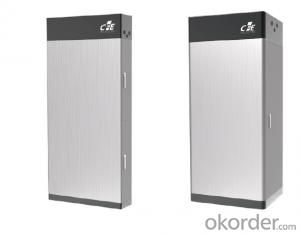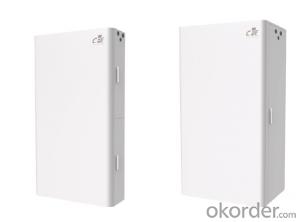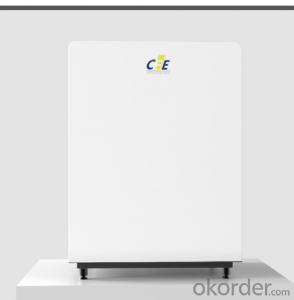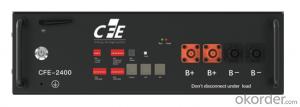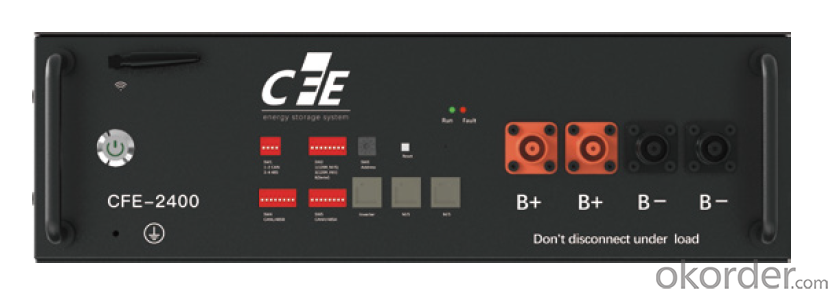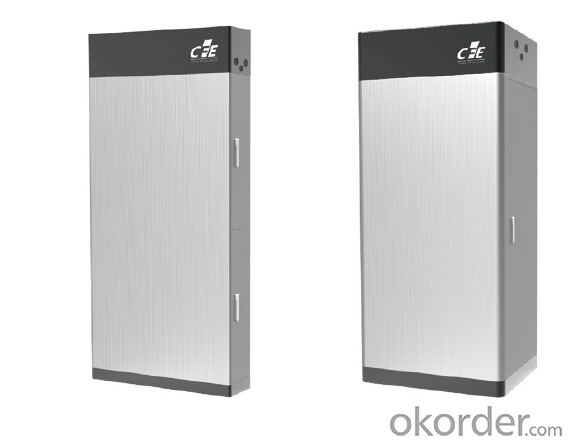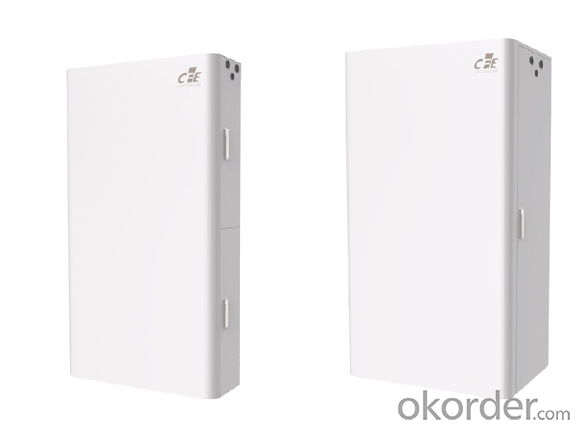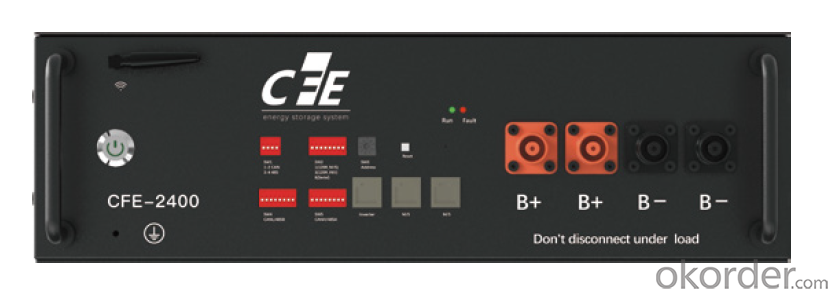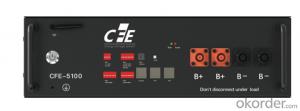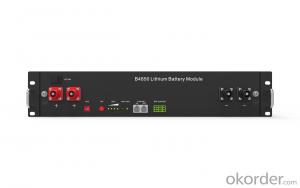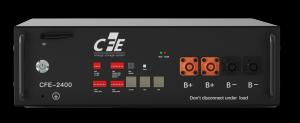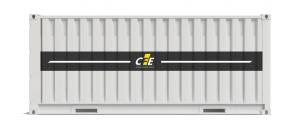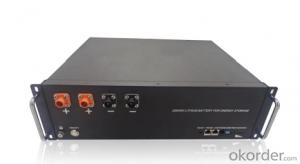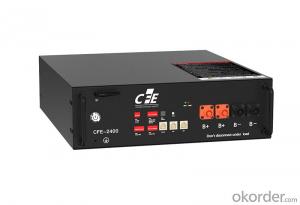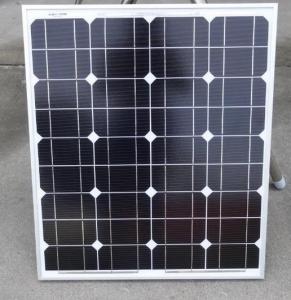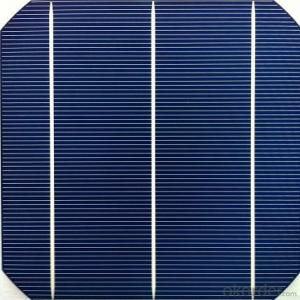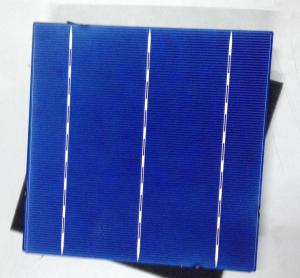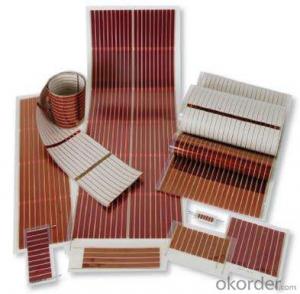Super Solar Cells CNBM-CFE Lithium Battery 2.4kWH ESS Battery
- Loading Port:
- Shanghai
- Payment Terms:
- TT OR LC
- Min Order Qty:
- 40 set
- Supply Capability:
- 1000000 set/month
OKorder Service Pledge
OKorder Financial Service
You Might Also Like
Specification
CNBM International Corporation, established in 2004, an important member of the Logistics Trade Section of CNBM
Group(Rank 187th the World Fortune Top 500 enterprises 2020). With our efforts to develop the market domestic and
abroad, we have built cooperation and partnership with 1600 manufacturers in China, and have established stable
business relationship in more than 120 countries and regions abroad.
Following the trend of reducing carbon emissions, relaying on our advantage in solar and energy development
simultaneously utilizing our competitive position we achieve sales revenue of USD 15 Billion in 2020.
CNBM International is highly recognized by its business partners and clients all over the world and has obtained rapid
development under the spirit of win-win. We will carry on the mutual beneficial, innovative and revolutionary trading
structure as we did before, create value for our employees, share holders and clients and benefit the whole society in
our future development.
and CNBM signed the global exclusive agent with CF energy for CFE brand ,CF-Energy was founded in 2018. A high-tech enterprise located in Xian Yang ,China. Engaged in the development of
energy storage and micro-grid systems.
CF-Energy owns the most sophisticated team(2 doctors, more than 20 electric/software engineer/electronic masters)
with top class R&D experts from lithium battery system design, BMS management, and system integration, Fire and
explosion protection etc.
In the future, the company will continue to uphold the concept of "early, fine and precise", devote itself to the full life
cycle management of lithium battery systems, continue to optimize the application of lithium battery systems in
different application scenarios, and continue to create value for customers.
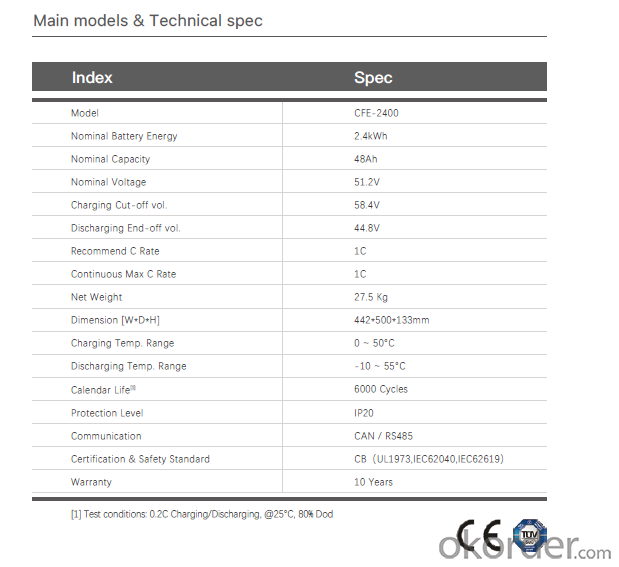
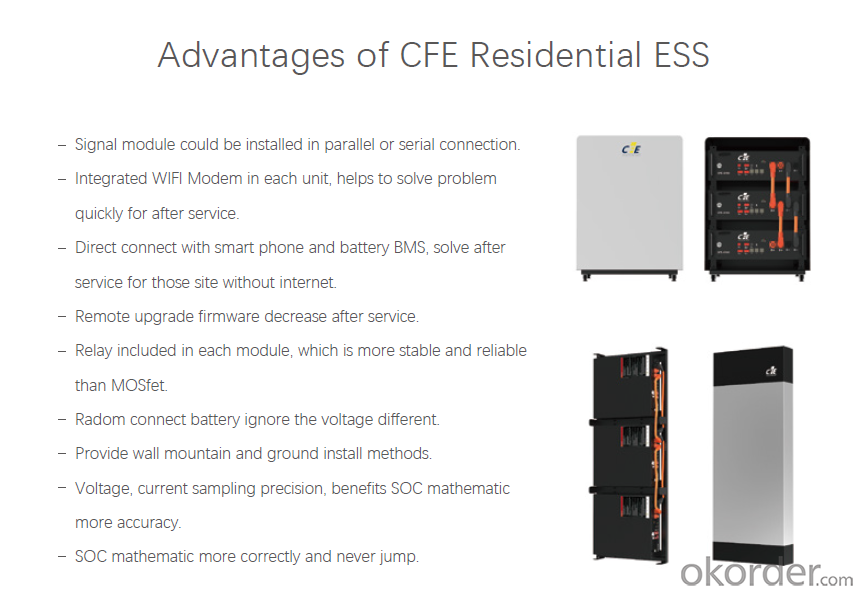
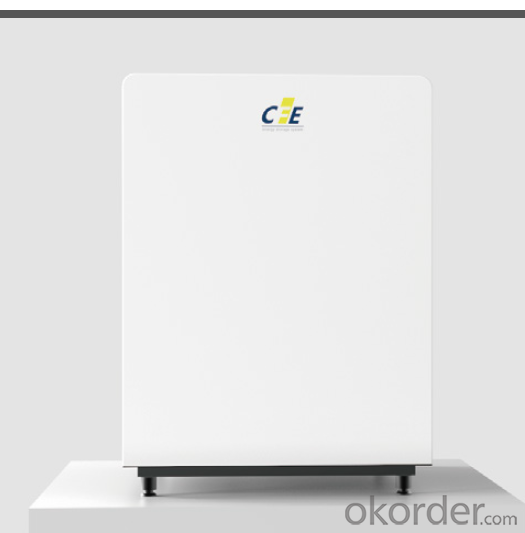
- Q: Can I buy solar cells easily online?
- I don't know about solar cells, but I do know you can buy solar panels online.
- Q: Can solar cells be used for military applications?
- Yes, solar cells can be used for military applications. They can provide a reliable and renewable source of power in remote and off-grid locations, reducing the dependency on fuel logistics. Solar cells can be used to power communication systems, surveillance equipment, and even provide energy for soldiers in the field. Additionally, solar-powered devices are silent, making them suitable for stealth operations.
- Q: How do solar cells handle power fluctuations in remote areas?
- Solar cells handle power fluctuations in remote areas through the use of energy storage systems, such as batteries. These batteries store excess solar energy generated during periods of high sunlight and release it during periods of low sunlight or high energy demand. This allows for a continuous and reliable power supply, mitigating the impact of power fluctuations in remote areas.
- Q: What are the maintenance requirements for solar cells?
- The maintenance requirements for solar cells typically include regular cleaning to remove dust and dirt that can reduce their efficiency, as well as occasional inspections to check for any damage or malfunctioning components. Additionally, it is important to ensure that the surrounding vegetation or structures do not shade the solar panels, as this can also affect their performance. Overall, solar cells have minimal maintenance requirements compared to other forms of energy generation.
- Q: Can solar cells be used in space satellites?
- Yes, solar cells can be used in space satellites. In fact, they are the most common source of power for satellites in space. Solar cells convert sunlight directly into electricity, making them an ideal and efficient source of renewable energy in the space environment.
- Q: What's the benefit of using a solar cell?
- It can help avoid the greenhouse effect.
- Q: Can the solar powered cells really work better than the normal cells?
- Because of the different ways of generating the power, the solar powered cells definitely better than the normal cells in the modern world.
- Q: Is the solar cells factory in China good and trustworthy?
- I can only say 50% of the solar cell factories in China are good, and they can meet your quality standard, while the other 50% of the solar cell factories are not very reliable.
- Q: Can solar cells be used in telecommunications?
- Yes, solar cells can be used in telecommunications. They can power various devices and infrastructure in remote areas where access to electricity is limited or non-existent. Additionally, solar cells can also be used to provide backup power in case of grid failures or emergencies, ensuring uninterrupted communication services.
- Q: Can solar cells be used in parking lots?
- Yes, solar cells can be used in parking lots. They can be installed on canopies or shade structures above parking spaces, or integrated into the ground as solar parking lot tiles. This allows parking lots to generate clean and renewable energy while providing shade for vehicles.
Send your message to us
Super Solar Cells CNBM-CFE Lithium Battery 2.4kWH ESS Battery
- Loading Port:
- Shanghai
- Payment Terms:
- TT OR LC
- Min Order Qty:
- 40 set
- Supply Capability:
- 1000000 set/month
OKorder Service Pledge
OKorder Financial Service
Similar products
Hot products
Hot Searches
Related keywords

